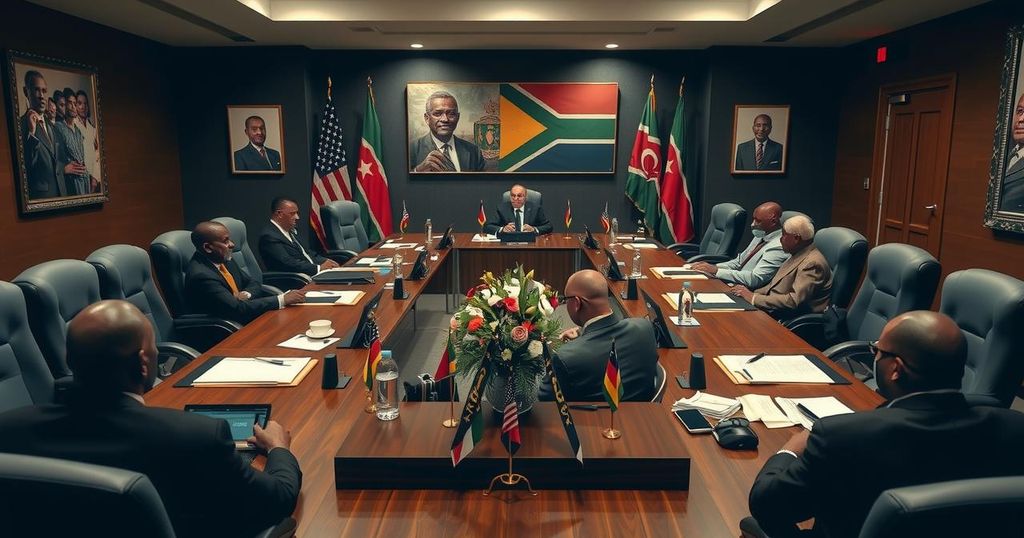Resumption of South Sudan Peace Talks After Four Months of Stalemate

South Sudan’s peace talks have resumed in Kenya after a four-month suspension and the sacking of a government delegation. This initiative aims to address the ongoing conflict affecting the nation’s economy and involves both government and opposition groups excluded from the previous peace agreements. Significantly, there are pressing concerns related to human rights and electoral processes that remain unresolved.
After a four-month hiatus, peace negotiations in South Sudan have recommenced in Kenya, following the removal of the previous government delegation. These talks aim to address the ongoing conflict that has adversely affected the nation’s economic stability. Engaging both the current government and opposition groups not included in the prior 2018 peace agreement, the dialogue seeks to foster a pathway to peace and stability in South Sudan.
The negotiations, referred to as “Tumaini,” meaning hope in Swahili, resurfaced after President Salva Kiir dismissed the initial government representation, leading to heightened tensions and a delay in proceedings. Despite appointments of new representatives, logistical challenges impeded timely participation in subsequent sessions in Nairobi. President Kiir emphasized that these discussions would not replace the existing peace agreement, but rather focus on the integration of unresolved issues raised by opposition factions.
In light of the unimplemented aspects of the 2018 accord, scheduled elections for December 2024 have been postponed to 2026, attributed to delays in voter registration processes exacerbated by financial constraints affecting civil services. With oil exports being the principal revenue source, ongoing civil unrest in Sudan has further complicated export dynamics, affecting national revenue.
During the talks, both factions expressed concern regarding a controversial new law permitting detentions without arrest warrants, citing potential violations of human rights. Chief mediator Lazarus Sumbeiyo urged all parties to expedite resolutions on outstanding matters. Furthermore, Pagan Amum, leader of the South Sudan Opposition Movement Alliance, highlighted the urgency of adhering to prior agreements, cautioning against any renegotiation that could jeopardize the nation’s fragile stability.
Moreover, Kuol Manyang Juuk, representing the government, called for unity, asserting that the objective was to build on existing agreements rather than restarting discussions from the beginning. Both sides appear to recognize the critical nature of these talks in determining South Sudan’s future stability.
The peace negotiations in South Sudan are significant due to the country’s protracted conflict, which has resulted in immense humanitarian crises, including a staggering death toll exceeding 400,000 individuals since civil unrest escalated in 2013. Efforts to establish peace have been marred by incomplete implementation of previous agreements and deep-seated political divisions. The latest round of talks aims to include factions that were not part of earlier accords, in hopes of fostering a more comprehensive and lasting peace agreement. Additionally, the country is navigating severe economic challenges, with widespread poverty affecting public services and leading to civil servants going unpaid for extended periods, further complicating peace efforts.
In summary, the resumption of peace talks in South Sudan marks a critical juncture for a nation seeking to end years of conflict and economic turmoil. The willingness of both the government and opposition to engage in dialogue is a step towards finding common ground and addressing the complexities of governance and civil rights in the region. The outcomes of these talks remain pivotal, not only for political stability but also for the socio-economic future of South Sudan.
Original Source: abcnews.go.com








